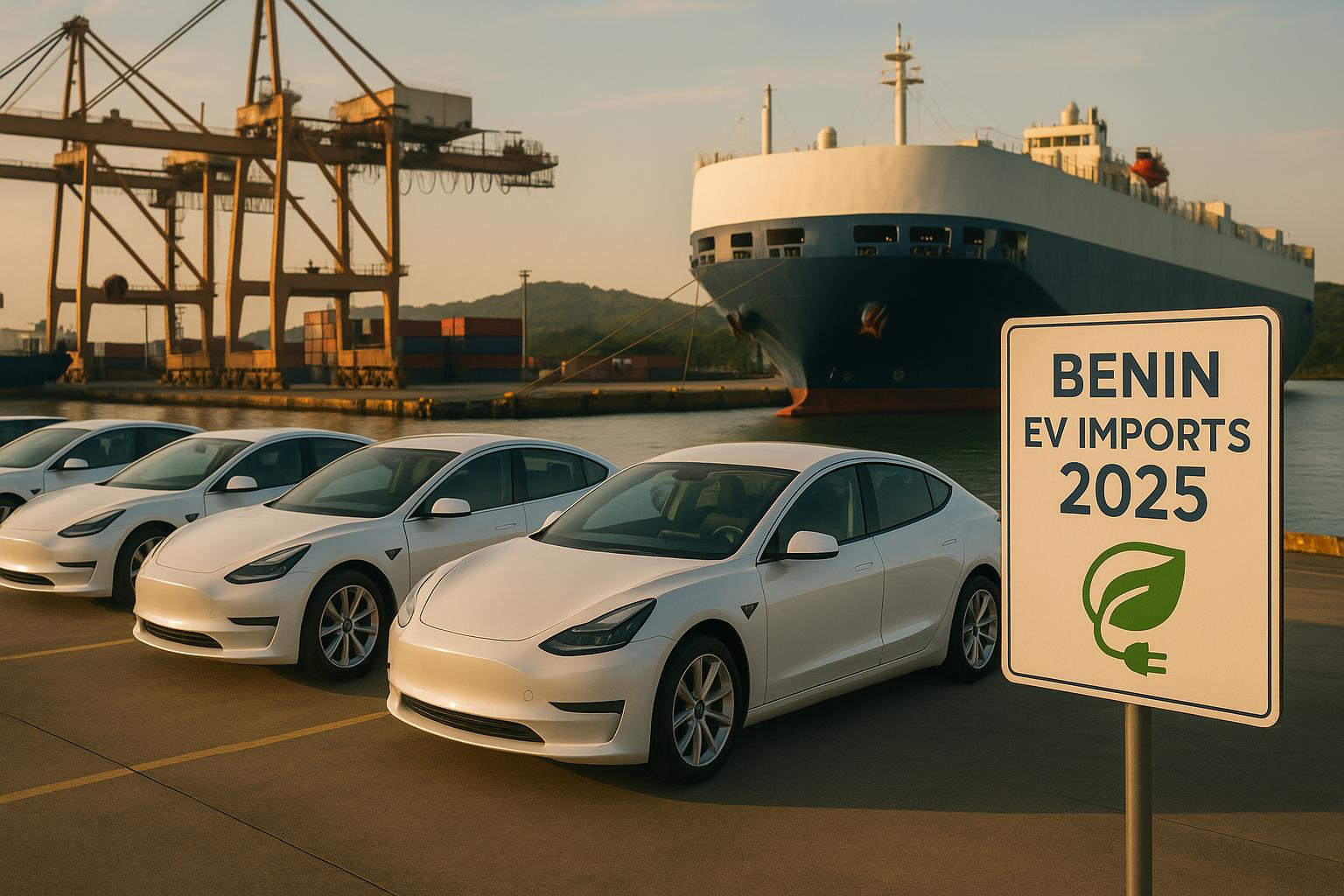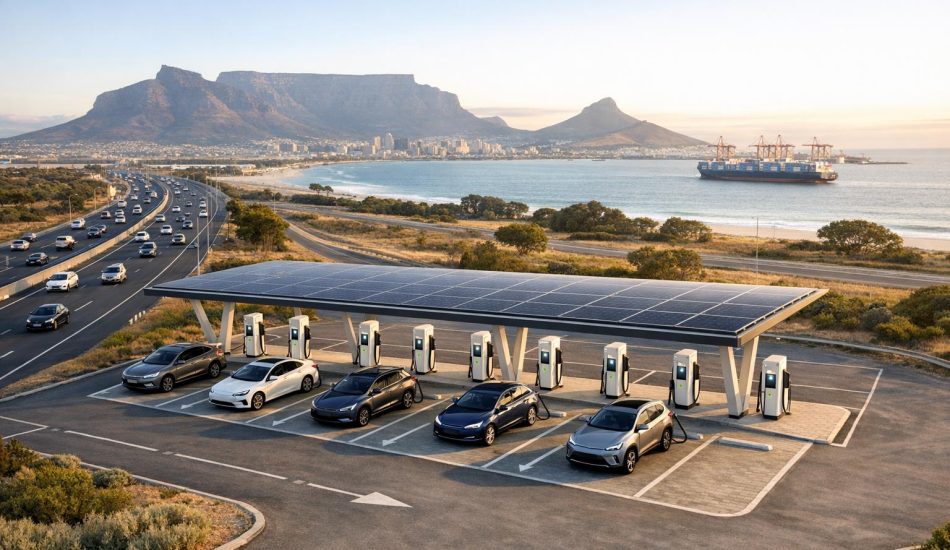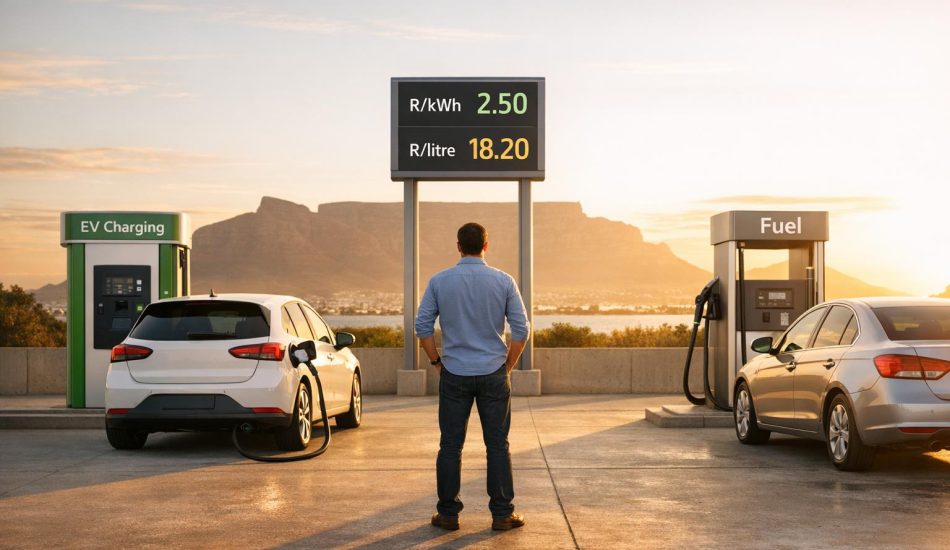
Benin’s 2025 electric vehicle (EV) import rules bring major changes to encourage EV adoption. Key policies include 0% VAT and customs duty exemptions for fully electric vehicles, simplified registration processes, and government incentives for both individuals and businesses. These measures aim to reduce costs for EV buyers and position Benin as a hub for EV distribution in West Africa.
Greener Africa: Benin Republic Embraces Electric Motorcycle Revolution
Key Points:
- Cost Advantages: Fully electric vehicles are exempt from VAT and customs duties, unlike gas-powered cars, which face 23–53% additional costs.
- Simplified Import Process: Importers must ensure their EVs meet the "100% electric" classification and follow customs procedures.
- Government Support: Incentives for businesses include tax reductions and exemptions, especially in Special Economic Zones (SEZs).
- Infrastructure Development: Plans for off-grid solar-powered charging stations and fleet renewal for motorcycle taxis (zemidjan) are underway.
These updates align with Benin’s broader goals of eco-friendly transport and economic growth while influencing EV trends in neighboring countries like Nigeria.
EV Tariffs and Import Duties for 2025
Benin’s tariff structure for 2025 introduces a favorable financial framework for importing electric vehicles (EVs) compared to traditional gas-powered cars. By offering tax exemptions for EVs, the government aims to encourage their adoption while maintaining standard duties for conventional vehicles.
Customs Duty and VAT Exemptions for EVs
In 2025, fully electric vehicles in Benin are exempt from both VAT and customs duties. This policy significantly lowers the cost of importing and purchasing EVs. In contrast, traditional vehicles are subject to Benin’s standard 18% VAT and additional customs duties. As a member of the Economic Community of West African States (ECOWAS), Benin adheres to the Common External Tariff (CET), which ranges from 0% to 35% based on product type and origin. However, fully electric vehicles are entirely exempt from these tariffs under the government’s exemption policy.
These exemptions apply to passenger cars as well as electric and hybrid motorcycles. Additionally, sellers and importers can claim VAT refunds at the end of the fiscal year. The cost disparity between EVs and traditional vehicles becomes even more pronounced when these exemptions are factored in.
EV vs Gas Vehicle Tariff Comparison
The financial benefits of importing electric vehicles in Benin become clear when comparing the costs of EVs and traditional gas-powered vehicles:
| Vehicle Type | Customs Duty | VAT | Overall Additional Cost |
|---|---|---|---|
| 100% Electric Vehicles | 0% (Exempt) | 0% (Exempt) | 0% |
| Traditional Gas Vehicles | 5–35% (CET rates) | 18% | 23–53% |
| Hybrid Vehicles | Reduced rates | Reduced rates | Variable |
For instance, importing a gas-powered vehicle valued at $20,000 could result in additional costs of $4,600 to $10,600 due to duties and taxes. In contrast, an equivalent electric vehicle would incur no such costs.
Customs Compliance and Processing Fees
Even with these exemptions, importers must follow standard customs procedures and pay processing fees. Benin’s structured customs tariff system ensures that administrative fees, such as clearance, port handling, and documentation costs, apply to all imported vehicles, regardless of type.
To simplify the process, EV24.africa provides end-to-end import management services, including handling documentation for EV exemptions and ensuring proper vehicle classification. While these processing fees are consistent across vehicle types, they cover administrative services rather than duties or taxes.
For more details on customs requirements, importers can consult the Ministry of Economy and Finance or Benin Customs websites. To qualify for exemptions, importers must ensure their vehicles meet the definition of "100% electric." Additionally, the government has announced plans to gradually reduce import duties for traditional, hybrid, and electric vehicles, signaling potential changes to the tariff structure beyond 2025.
sbb-itb-99e19e3
How to Import and Register an EV in Benin
Bringing an electric vehicle (EV) into Benin involves navigating customs procedures and adhering to local registration rules. While the detailed 2025 guidelines are still awaited, it’s essential to stay in touch with the relevant authorities for the latest updates.
Required Import Documents
Specific documentation requirements for 2025 have yet to be finalized. Importers should ensure they obtain all necessary permits and regularly check with customs officials for any changes or updates.
Customs Clearance Steps
When your EV arrives at one of Benin’s ports, customs officials will first determine whether the vehicle qualifies for any duty exemptions. Once this step is complete, you can proceed to register the vehicle with the appropriate transportation authorities.
Vehicle Registration Process
After clearing customs, registering your EV is the next critical step. Though detailed procedures and costs for EV registration in Benin remain unclear, all vehicles must be registered with the national transportation authority. It’s advisable for future EV owners to consult the Direction Générale des Transports Terrestres for the most up-to-date information to ensure compliance with local rules and regulations.
Government Incentives for EV Buyers and Businesses
Benin has introduced a range of targeted incentives aimed at making electric vehicles (EVs) more affordable and promoting sustainable transportation. The Ministry of the Economy has rolled out measures such as tax exemptions and reduced import duties for EVs, reinforcing its commitment to eco-friendly mobility.
Individual Buyer Incentives
For individual buyers, the benefits are straightforward: complete exemptions from VAT and customs duties on fully electric vehicles. However, it’s crucial for buyers to confirm that their chosen EV qualifies as a 100% electric vehicle under Benin’s classification system to take advantage of these perks.
Business Incentives
Businesses also stand to gain significantly from these policies. Under the Investment Code, companies investing in renewable energy projects, including EVs, can access various benefits. For businesses operating in Special Economic Zones (SEZs), the incentives are even more attractive, with reduced profit taxes and exemptions on duties.
To qualify for these advantages, companies must meet specific requirements, such as employing a minimum number of Beninese nationals, adhering to environmental standards, and following nationally accepted accounting practices.
State-owned utilities and agencies like the Benin Water Company (SONEB) and the Beninese Electric Energy Company (SBEE) further support businesses by offering free connections to water and electricity for small and medium-sized enterprises. Meanwhile, the Investment and Exports Promotion Agency (APIEX) simplifies the process of accessing these incentives, acting as a centralized hub for new investments.
How Incentives Affect Total Ownership Costs
These incentives collectively make EV ownership more accessible and economically viable in Benin. Tax exemptions on qualifying EVs significantly lower the upfront costs for buyers. For businesses, the second Government Action Plan (PAG) integrates environmental priorities into public procurement policies, offering companies with electric fleets a potential advantage in securing government contracts. Additionally, businesses in SEZs benefit from reduced tax burdens and duty exemptions, further improving the financial case for investing in EVs.
Conclusion: Using Benin’s EV Import Rules for 2025
Benin’s updated electric vehicle (EV) import rules for 2025 bring exciting opportunities for individuals and businesses to embrace cleaner, more cost-effective transportation. With the government backing electric mobility through tax breaks and other incentives, the country is paving the way for broader EV adoption. These changes are shaping a supportive framework for both private users and businesses managing fleets.
Key Takeaways for Buyers and Businesses
Bringing EVs into Benin comes with clear cost advantages. Full exemptions from VAT and customs duties on fully electric vehicles make them far more affordable compared to conventional imports. For businesses, this is a chance to modernize fleets while taking advantage of government programs aimed at building a stronger e-mobility infrastructure.
Industry leaders stress the importance of aligning with government policies to drive the shift toward electric transportation. To make the most of these benefits, businesses and individuals should ensure their vehicles meet Benin’s standards and keep up with all necessary documentation and compliance requirements.
If you’re looking to take advantage of these incentives, make sure your EV qualifies under the updated regulations and complete the required paperwork. For added convenience and guidance, EV24.africa offers tailored support to help you navigate the process.
How EV24.africa Supports EV Buyers in Benin

EV24.africa simplifies the often challenging process of importing and registering EVs in Benin. From managing logistics to handling documentation, they make the journey smoother for first-time and experienced importers alike. Their services cover all 54 African countries, including Benin, and they provide clear, upfront pricing to help buyers fully understand the savings offered by Benin’s updated EV import rules.
FAQs
What does Benin consider a ‘100% electric vehicle’ under the 2025 import regulations?
To meet Benin’s 2025 import standards for 100% electric vehicles, a car must run exclusively on electric power. This means no internal combustion engine or hybrid systems are allowed. In simple terms, the vehicle must depend entirely on a rechargeable battery and an electric motor to function.
How will Benin develop charging stations for electric vehicles, and what role will solar-powered solutions play?
Benin is setting its sights on expanding its electric vehicle (EV) charging network in 2025, with a strong emphasis on off-grid solar-powered systems. These solutions, such as solar home units and mini-grids, are designed to function independently of the main power grid. This makes them a perfect fit for rural and remote areas where extending the grid would be either too expensive or logistically challenging.
By tapping into its abundant solar energy, Benin aims to align this initiative with its renewable energy ambitions. Solar-powered EV charging stations will pave the way for broader access to cost-effective and environmentally friendly charging options, encouraging greater EV adoption throughout the country.
What advantages do businesses gain by investing in electric vehicles in Benin’s Special Economic Zones (SEZs)?
Businesses focusing on electric vehicles in Benin’s Special Economic Zones (SEZs) have access to a range of incentives aimed at promoting growth and simplifying operations. These perks include lower corporate tax rates, waivers on import and export duties, and streamlined regulations that reduce bureaucratic hurdles for companies looking to establish or expand their presence.
These advantages not only cut down on operating expenses but also open doors for businesses to play a role in sustainable development while staying competitive in the expanding EV market. By tapping into these opportunities, companies can solidify their position as key players in Benin’s emerging electric vehicle industry.




